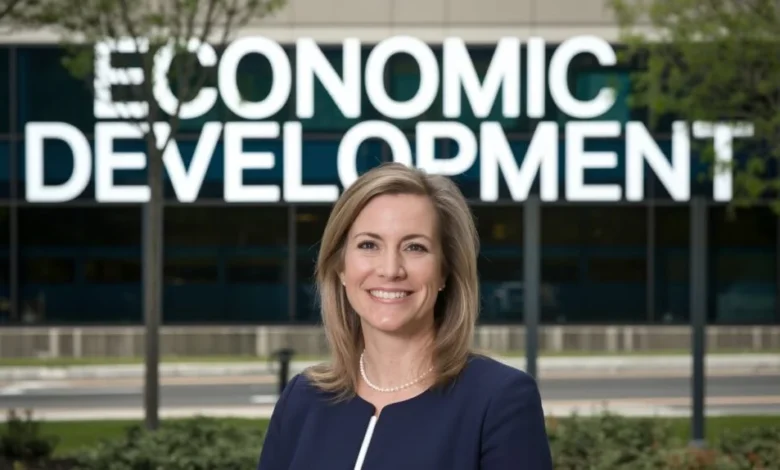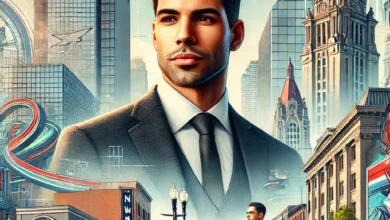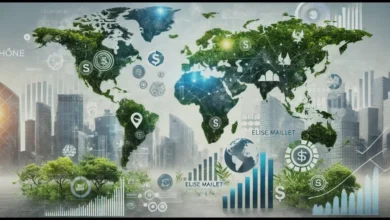Maria Clark Economic Development: Driving Community Growth and Sustainability

Economic development is a crucial aspect of societal growth, contributing significantly to the transformation of local economies and communities. Individuals like Maria Clark have become integral players in this field, guiding strategies and influencing policies that bolster economic sustainability and prosperity. This article delves into Maria Clark’s contributions to economic development and the broader impacts of her efforts on communities. From revitalizing local industries to attracting investment, Clark’s work is an example of how focused development strategies can create lasting change.
Who is Maria Clark?
Maria Clark is a prominent figure in economic development. Over the past two decades, she has worked with local governments, nonprofits, and private entities to implement growth strategies tailored to the unique needs of various communities. Her work often emphasizes inclusive economic growth, ensuring that underserved populations benefit from economic revitalization processes.
Clark’s strategies focus on fostering local entrepreneurship, improving access to capital for small businesses, and encouraging sustainable development. Her efforts are a testament to the idea that economic growth is not just about attracting big companies but also about empowering local stakeholders to create lasting change.
Understanding Economic Development
At its core, economic development refers to efforts that seek to improve the financial well-being and quality of life of a community. This often involves creating jobs, supporting businesses, improving infrastructure, and promoting social equity.
Economic development can be driven by various sectors, including:
- Public Sector: Governments implement policies that incentivize businesses to invest in specific regions or industries.
- Private Sector: Businesses invest in areas where they see potential growth, creating jobs and supporting local economies.
- Nonprofit Sector: These organizations often focus on social and community-based aspects of economic development, such as education and workforce training.
Maria Clark’s approach to economic development uniquely combines these three sectors. By bridging the gap between them, she ensures that communities are not only attracting investments but are also prepared to sustain them over the long term.
Key Areas of Focus for Maria Clark’s Economic Development Initiatives
- Community-Centered Development
- Maria Clark believes in a community-first approach to economic development. This means engaging with local leaders, business owners, and residents to identify their needs and develop tailored strategies. For example, in one of her projects in a mid-sized American city, she facilitated workshops where local entrepreneurs could connect with investors and learn best practices for scaling their businesses. The result was an increase in locally-owned companies that could compete on a national level.
- Infrastructure Development
- Infrastructure is the backbone of any economic development plan. Clark understands that for businesses to thrive, they need reliable transportation, communication networks, and public utilities. In several of her projects, she has worked with local governments to secure funding for critical infrastructure improvements. These improvements, in turn, attracted businesses that required robust logistical support, such as manufacturers and tech companies.
- Workforce Development
- The workforce is a key component of economic development, and Maria Clark has been a champion of workforce training programs. She advocates for initiatives that provide workers with the skills they need to succeed in emerging industries. Through partnerships with local educational institutions, she has helped develop training programs that address the skills gap in areas like technology, healthcare, and renewable energy.
- Sustainability and Green Initiatives
- With growing concerns about climate change, sustainability has become a critical aspect of modern economic development. Clark is a strong advocate for green development practices, encouraging businesses to adopt eco-friendly policies and invest in renewable energy. One of her notable successes involved a collaboration with a local utility company to provide incentives for firms that invested in solar energy, reducing the region’s carbon footprint while creating jobs in the renewable energy sector.
The Impact of Maria Clark’s Work on Local Economies
Maria Clark’s approach to economic development has had a measurable impact on the regions she has worked with. Some of the most notable outcomes include:
- Increased Employment Opportunities: By attracting businesses and fostering local entrepreneurship, Clark’s projects have significantly reduced unemployment rates in several cities. For example, in one of her major projects, unemployment dropped by 3% over two years.
- Enhanced Local Business Ecosystems: Local businesses are often the cornerstone of community economies. Clark’s focus on entrepreneurship has helped create a more resilient local business ecosystem, with many small and medium-sized enterprises (SMEs) thriving due to her support.
- Attracting Investment: Through her efforts, many regions have seen increased investment from both the public and private sectors. These investments have led to the development of commercial hubs, improved infrastructure, and a stronger tax base for local governments.
- Sustainability in Economic Growth: Clark’s emphasis on green initiatives has led to more sustainable development in the areas where she operates. Businesses adopting eco-friendly practices have not only reduced their environmental impact but have also become more competitive due to reduced operational costs.
Challenges in Economic Development
While Maria Clark has had significant successes, economic development comes with its own set of challenges. These include:
- Balancing Growth with Equity: One of the most significant challenges in economic development is ensuring that growth benefits everyone, not just large corporations or affluent neighborhoods. Clark has addressed this by advocating for policies that prioritize affordable housing and equitable access to economic opportunities.
- Securing Funding: Economic development projects often require substantial upfront investments, particularly for infrastructure development. Maria Clark has been adept at obtaining funding through a mix of public and private partnerships, but this remains a common hurdle in the field.
- Long-Term Sustainability: Ensuring that economic gains are sustainable over the long term is another challenge. Without proper planning, rapid growth can lead to issues such as gentrification and environmental degradation. Clark’s focus on sustainability helps mitigate these risks, but the challenge remains.
Final Thoughts
Maria Clark’s work in economic development demonstrates the importance of a multi-faceted approach that balances growth, equity, and sustainability. Her efforts have proven that economic development is not a one-size-fits-all solution; it requires collaboration, innovation, and a deep understanding of community needs. By focusing on local entrepreneurship, infrastructure, workforce training, and sustainability, she has been able to create lasting change in the regions she has worked with.
Her approach serves as a model for economic developers worldwide. As communities face new challenges such as climate change, technological disruption, and social inequality, the need for innovative leaders like Maria Clark will only grow.
Questions & Answers
Q: What is the main focus of Maria Clark’s economic development strategies?
A: Maria Clark’s strategies focus on community-centered development, workforce training, infrastructure improvements, and sustainability.
Q: How does Maria Clark ensure that economic development is inclusive?
A: Clark ensures inclusivity by engaging local communities in the development process, creating programs that provide economic opportunities for underserved populations, and advocating for policies that support affordable housing and equitable access to jobs.
Q: What are some of the challenges in economic development that Maria Clark addresses?
A: Some challenges include balancing growth with equity, securing funding for projects, and ensuring long-term sustainability in the face of rapid economic changes.
Sources:
- National Economic Development Organizations
- Sustainable Development Goals
- Local Economic Development Strategies




